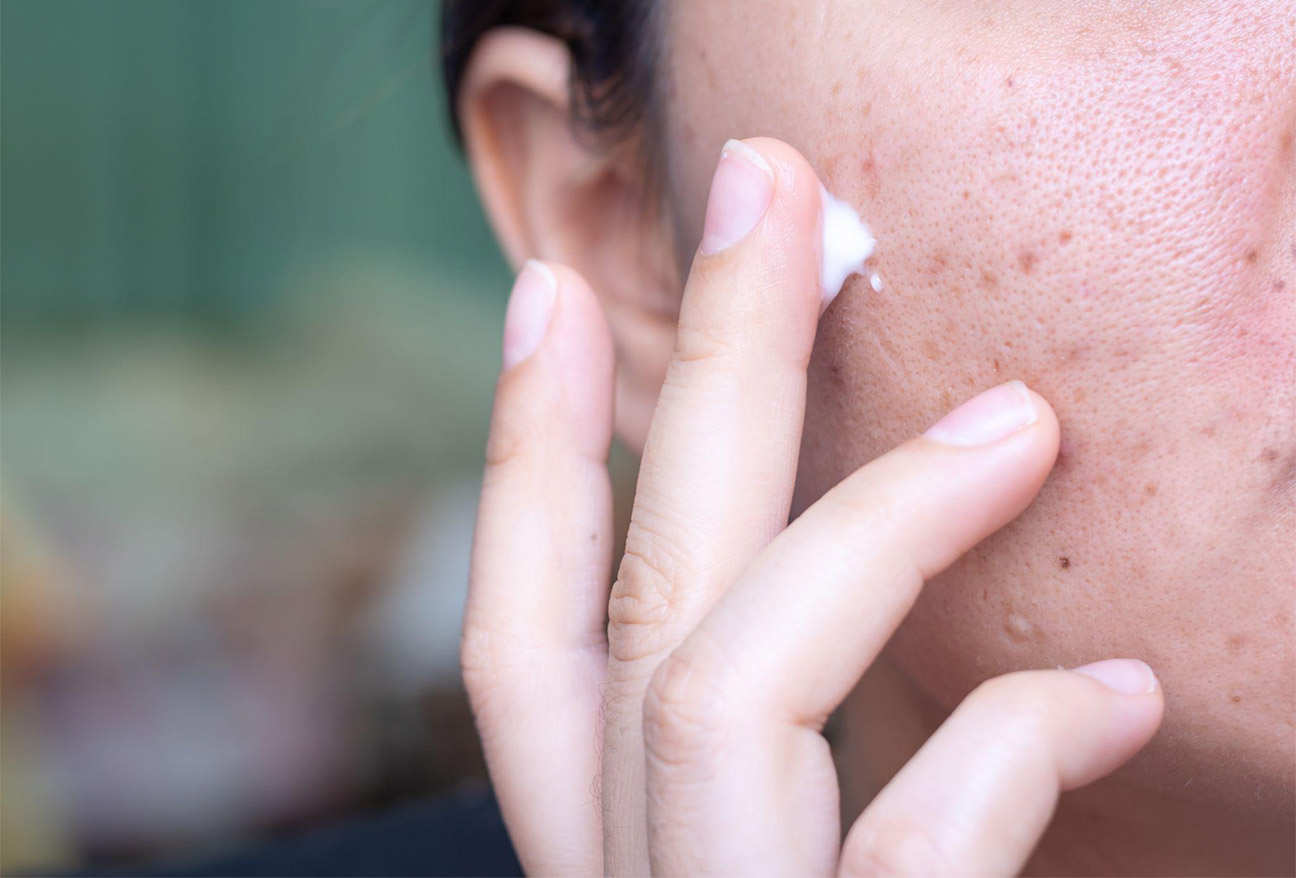-
mederma@winmedicare.com
- No.1 Dermatologist Recommended Scar Brand
-
Login

Many of us struggle with skin concerns, and two of the most common issues that can affect our complexion are acne and pigmentation. While they might seem similar at first glance, understanding the difference between acne and pigmentation is key to choosing the right treatment.
Acne results from clogged pores, bacteria, and excess oil, while pigmentation arises from excess melanin caused by inflammation, sun exposure, or hormonal changes. Distinguishing between acne and pigmentation is essential, as each requires a different approach to effective treatment. This understanding can help you make firm decisions about your skincare routine.
That’s where Mederma comes in. Mederma offers targeted solutions designed to help reduce the appearance of acne scars and pigmentation, allowing you to achieve smoother, more even-toned skin over time. Let’s take a closer look at how Mederma can support your skin’s healing journey.
Acne is a very common skin condition caused by clogged pores, excess oil, dead skin cells, and bacteria. This blockage leads to inflammation, which causes various types of blemishes, such as pimples, blackheads, and cysts.
While acne is most often associated with puberty, it can affect individuals of all ages. As acne heals, it can leave behind marks or scars that linger long after the breakouts have cleared, affecting the skin’s appearance.
Acne presents itself in several different forms, each leaving its unique mark on the skin. These include:
As these breakouts heal, the skin may be left with marks, which can be confused with pigmentation. Hence, understanding the difference between acne and pigmentation is key when treating these skin concerns.
When acne leads to scarring, it can take different forms depending on the severity and depth of the skin damage. The common types of acne scars include:
While acne scars and pigmentation both affect the skin’s appearance, they are different in how they form and heal.
The basic difference between acne and pigmentation is that pigmentation occurs when the skin discolours or darkens. It happens when excess melanin is produced in certain areas of the skin in response to triggers like inflammation or sun exposure. This can result in dark spots, sun spots, or even post-inflammatory hyperpigmentation (PIH).
The Cause of Pigmentation: Pigmentation occurs when the skin reacts to external factors like the sun or internal inflammation. The process starts with an injury, like an acne breakout, where the skin produces more melanin in response.
So, while acne and pigmentation are often linked, it’s crucial to recognise that acne scars affect the deeper layers of the skin. In contrast, pigmentation is often just a surface-level discolouration.
Recognising the key differences between acne and pigmentation can help you target your skincare routine more effectively, whether you’re dealing with acne scars or pigmentation:
| Aspect | Acne | Pigmentation |
| Cause | Caused by clogged pores, excess oil, and bacteria, leading to pimples, cysts, and blackheads. | Results from overactive melanin production driven by sun exposure, inflammation, or injury. |
| Appearance | Presents as raised pimples, cysts, and blackheads, which can lead to acne scars (pitted or depressed marks). | Appears as flat dark spots or patches on the skin’s surface without changing the skin’s texture. |
| Healing Process | Acne scars are deep and may require more intensive treatments for improvement. | Pigmentation generally fades over time but may benefit from targeted treatments for faster fading. |
Mederma offers a comprehensive approach to managing acne scars and pigmentation, backed by its clinically proven formulations:
The Mederma Advanced Plus Scar Gel is formulated to visibly reduce the appearance of both acne scars and pigmentation marks. Its unique triple-action formula penetrates deep into the skin to:
For round-the-clock care, the Mederma PM Intensive Overnight Scar Cream takes skincare to the next level. Designed to work overnight, this scar cream:
Pigmentation, especially post-inflammatory hyperpigmentation (PIH), is a surface-level skin issue caused by excess melanin production. Unlike acne scars, pigmentation doesn’t penetrate deep into the skin layers, making it more likely to fade with consistent care.
When addressing acne scars and pigmentation, treatments that promote skin renewal and reduce discolouration can accelerate the fading process.
With the right skincare approach and lifestyle adjustments, you can address both conditions effectively. Here’s how:
1. Build a Consistent Skincare Routine
2. Use Mederma for Acne Scars and Pigmentation
Mederma Advanced Plus Scar Gel is a trusted solution for acne scars and pigmentation. Our paraben-free formula is safe during pregnancy and breastfeeding, offering a gentle yet effective way to reduce scars.
3. Protect Your Skin with Sunscreen
It’s essential for preventing further pigmentation and aiding scar healing. To keep your skin safe from the harmful impact of UV rays, use a broad-spectrum SPF 30+ daily, even indoors.
4. Support Your Skin with Lifestyle Changes
Healthy habits can amplify your results:
5. Be Consistent for Lasting Results
Treating acne scars and pigmentation takes time, but with consistent effort, visible improvements will follow. Stick to your routine and let Mederma support your journey to clearer, smoother skin.
Also Read – Difference Between Acne and Pimple
Understanding the difference between acne and pigmentation is the first step toward achieving healthier, clearer skin. By distinguishing between acne scars and pigmentation, you can create a skincare routine according to your specific needs.
Mederma offers scientifically backed solutions for acne scars and pigmentation. Its advanced formulations can reduce scars, fade dark spots, and enhance skin texture and tone. Incorporating Mederma products, alongside sunscreen and a consistent skincare routine, empowers you to take control of your skin’s health.
Don’t wait to start your journey toward smoother, more radiant skin. Explore our range today and uncover the confidence that comes with a glowing, even complexion!